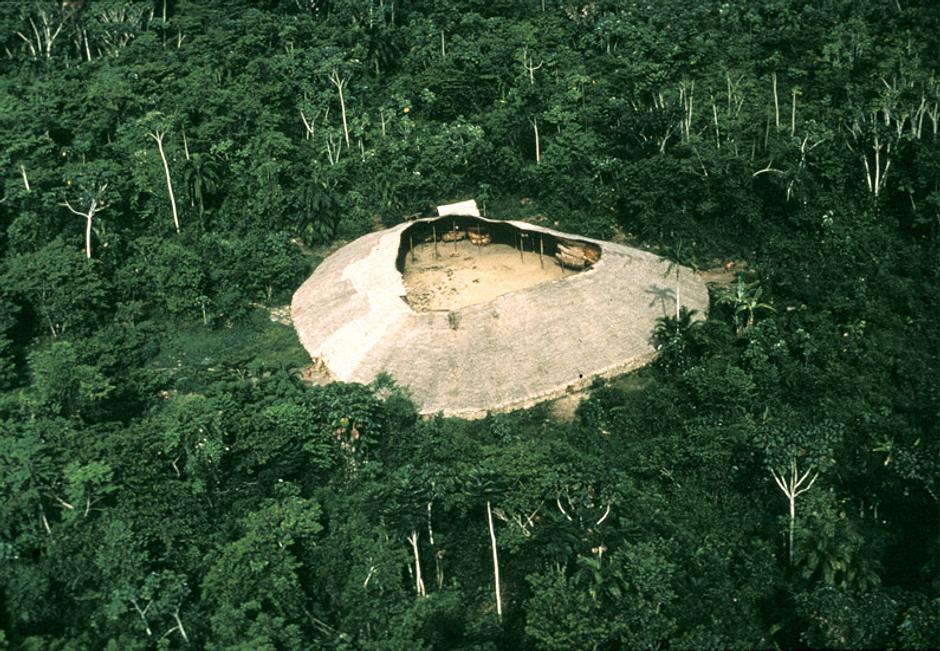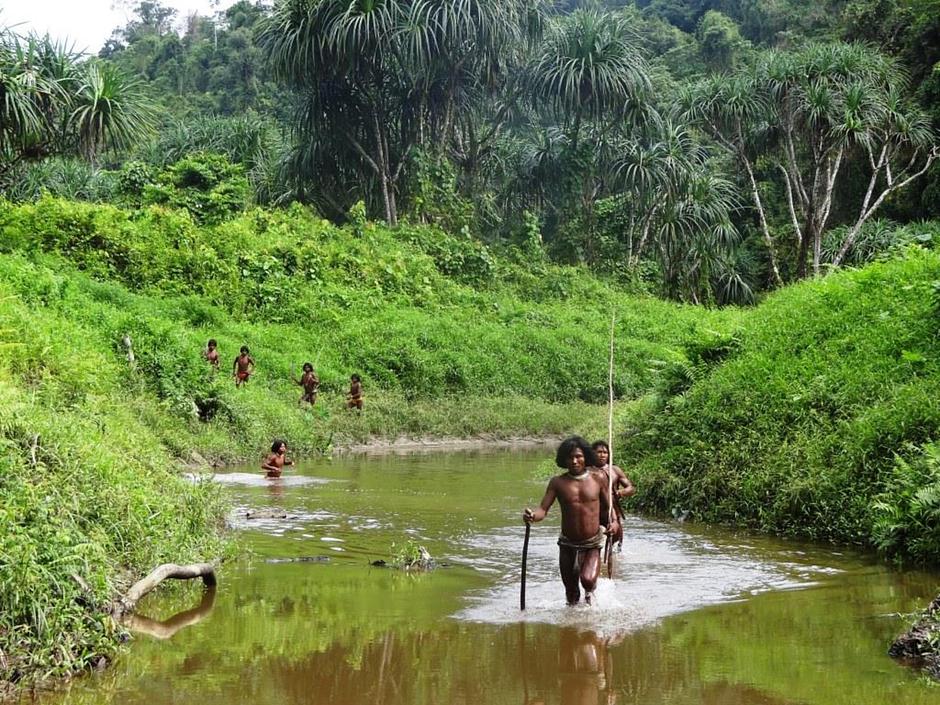Human Safaris: When Does Tourism Become Unethical?
The sign on his cage read simply, ‘The Missing Link’. ‘Pygmy’ tribes man Ota Benga was on display in the monkey house at the Bronx Zoo in New York. At his feet was a chimpanzee. Thousands of people visited him, according to the New York Times; they mostly jeered.
Miles away, on the coral-fringed Andaman Islands in the Indian Ocean, a policeman was caught on video instructing members of the remote Jarawa tribe to dance for tourists – according to an Observer report – in exchange for bananas and biscuits, thrown to them from jeeps.
The time span between the events is approximately a century. Ota Benga was grotesquely humiliated in 1906; the video of the dancing Jarawa emerged only two weeks ago.
The video has caused outrage across the world and raised questions about the ethics of travel to remote tribal communities, particularly when they result in such demeaning ‘human safaris’.
As humans, we move. We travel; we always have. Journeying is hard-wired in the human psyche; we migrated from Africa thousands of years ago, walking out of the savannah to the rest of the world.
Today, tourism is still one of the western world’s fastest growing industries. We leave home to climb mountains and trek through rainforests, to dance in Cuba, swim the Hellespont, barter in a souk or lie on a beach.
In his book, The Art of Travel the philosopher Alain de Botton contemplates the underlying reasons for travel. To gain perspective is one, he says, for he believes that “there are inner transitions we can’t properly cement without a change of locations.” Change is also a key motivator in the mind of the late travel writer Bruce Chatwin. “Change of fashion, food, love and landscape,” he wrote. “We need them as the air we breathe.”
So we travel for knowledge, for pleasure, for enlightenment; to ease the tedium of daily routine and satisfy the imaginings of curious minds. We travel to shake up our souls and to placate an atavistic restlessness within us. Ernesto Che Guevara thought that we simply “travel just to travel.”
Adventure travel is tourism’s recent offspring; travellers now have the opportunity to roam further, higher and wilder than before. This means that they risk coming into contact with remote Indigenous communities, for the world’s remote corners – the green depths of the Amazon basin or the highlands of West Papua – are often the lands and homes of tribal peoples.
Their homelands sustain them physically and spiritually, and they understand them intimately: the Yanomami people who live deep in the Brazilian Amazon know the streams and rapids of the rainforest in the same way the Inuit understand the sea-ice of the Canadian Arctic.
And this is where the problems with adventure travel start, because it can simply be dangerous for both tourists and little-contacted tribal peoples to meet. Tribes are likely to react with hostility towards outsiders, and tourists can transmit infectious diseases to which little-contacted peoples have no immunity.
Curiosity in other cultures is natural. Tourists can, at times, even help by travelling with ethically run eco-tourism companies. But the line between ethical and non-ethical is extremely fine. So where does it lie?
In principle, there is little harm in tourists visiting tribal peoples who have been in routine contact with outsiders for some time. But as natural social sensitivity and respect would dictate, this only applies to tribal peoples who are happy to receive visitors, have proper control over where the tourists go and what they do in their communities, and receive a fair share of the profits.
More often than not, however, only the tiniest proportion of tourism’s profits – if any – go to recompensing the tribe; there are very few enterprises that genuinely bring benefits. These are often run by tribal peoples themselves and involve small, well-managed and low-impact tours.
Travelers thinking of visiting tribal areas need to think very carefully about the long-term effects on tribal peoples, not the fleeting thrill of the experience or the glory of the story once back home. For example, tribal peoples’ ownership of the lands they use and occupy is recognized in international law, and should be respected regardless of whether the national government applies the law or not; so when in tribal lands, tourists should behave as they would on any other private property.
It goes – or should go – without saying that tribal peoples have the same basic human rights as everyone else, which must be upheld. Where travel and tribal peoples connect, the reasons for travel need to be carefully analyzed, for the joy of movement and discovery is wholly unjustifiable when it places tribal peoples at risk.





